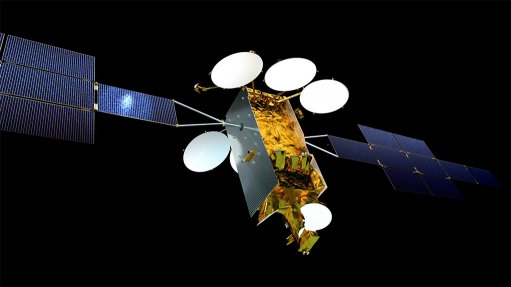
Computer image of an Eurostar Neo satellite in orbit
Photo by: Airbus
Europe-based global major aerospace group Airbus is now engaged in large volume manufacturing of radio frequency (RF) components for satellites using additive layer manufacturing (ALM). Also known simply as additive manufacturing, ALM is popularly called 3D printing.
RF components are of course fundamental for telecommunications satellites. Airbus has now manufactured 500 such components, comprising multi-waveguide blocks and switch assembly networks. Produced at Airbus Defence and Space’s facility in Portsmouth in the UK, they are for two Eurostar Neo spacecraft for Eutelsat.
(Eutelsat is one of the world’s major telecommunications satellite operators. Formed as an international organisation in 1977, Eutelsat was transformed into a private company in 2001. It became a public listed company in 2005.)
The two new satellites, like their predecessors for Eutelsat, will operate under the designation ‘Hotbirds’. They will be launched this year to strengthen and improve its TV broadcasting services across Europe, North Africa and the Middle East.
“This is recognised as the first large-scale deployment of RF products using the ALM process, and it puts us in an industry-leading position for the technology’s application in producing radio frequency components,” highlighted Airbus Defence and Space Hotbird Payload manager Gareth Penlington. The Portsmouth team created innovative designs for the RF components that were to be made using ALM. The process ran from the first concepts through patenting, industrialisation and successful qualification.
The communications module for the first of the new Hotbirds was transferred from Portsmouth to Toulouse in France earlier this month. The final assembly of the complete satellite is undertaken in the French city. The assembly of the second new Hotbird communications module is currently taking place in Portsmouth, with its testing due to start this month.